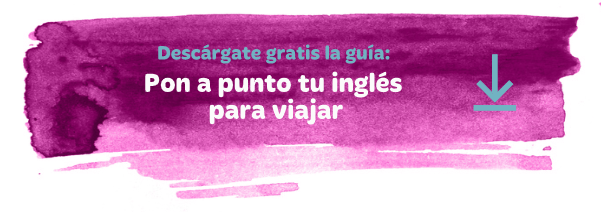What's Up! blog
el mejor contenido del mejor curso de inglés
Pon tu inglés a prueba: too enough exercises
Too y enough son adverbios de cantidad que modifican a adjetivos. En su acepción como “tan” podrían ser equivalentes, en este post veremos cuando se usa cada uno de ellos y os dejamos ejercicios para practicar.
Too and enough: la teoría
Aunque se pueden prestar a confusión estos dos adverbios se unan de forma distinta:
-
Too + adjetivo: se usa antes de los adjetivos para expresar que la cantidad o grado del mismo es más de lo necesario, aceptable, sensato o deseable. Por ejemplo
-
Your hair is too long, you should have it cut
-
You work too hard, you need a holiday!
-
-
(Not) enough + adjetivo: se usa después del adjetivo para expresar que la cantidad del mismo es suficiente para un objetivo concreto.
-
You are smart enough to know this won’t work
-
He isn’t fast enough to win the competition
-
-
(Not) enough + sustantivo: se usa delante de sustantivo para expresar que la cantidad del mismo es suficiente para un objetivo concreto. Por ejemplo,
-
I didn’t have enough time to finish the test
-
I still haven’t enough money for a new smartphone
-
Practica too/ enough con estos ejercicios
1. Completa los huecos con too/enough + el adjetivo o sustantivo que aparece entre paréntesis
-
When we arrived we were…………………………………(hungry) to eat whatever we they served us.
-
She is……………………………..(tired) to keep on studying
-
It was…………………………………(windy) to open the umbrella, so I had to walk under the rain until I got home.
-
Patrick isn’t……………………………………(well) to go back to work.
-
I’m sorry, I’m far………………………………(busy) to go out for a coffee.
-
He’s ………………………………………(tall) to play basketball
-
Tom wasn’t…………………………………(lucky) to win the lottery, however he got a refund
-
Did you have…………………………….(time) to visit the National Gallery when you visited London?
-
He drives just……………………..(fast). He will get a fine sooner or later
-
Please, let me know if the music is …………………………………(loud) for you.
2. Elige la opción adecuada. Presta atención al orden de las palabras
-
David has enough money/money enough/too much money to buy a new computer, but he keeps on working with that old thing.
-
We are too busy enough/too busy/enough busy to help you now, please come back in an hour or so.
-
My sister isn’t good enough/isn’t enough good/isn’t too good in English, however, she has applied for an international internship.
-
My son wants to travel around the world, but he is still too young/enough young/young enough for that.
-
There wasn’t room enough/enough room/too room in the car for all of us, so we had to take a taxi.
-
I drank enough wine/too much wine/ wine enough at the party and I fell asleep.
-
Seville is enough far/far enough/too far to drive there, let’s better take a plane.
-
Their house wasn’t too big/wasn’t enough big/wasn’t big enough for the whole family, it looked too crowded.
KEY
-
enough, too, too, enough, too, enough, enough, enough, too, too
-
enough money, too busy, isn’t good enough, too young, room enough, too much wine, too far, wasn’t big enough
Post relacionados:
- Inglés y fonética: las claves para pronunciar mejor
- Reported speech: explicación práctica del estilo indirecto
- Diferencias entre many y much que te ayudarán a escoger la correcta



